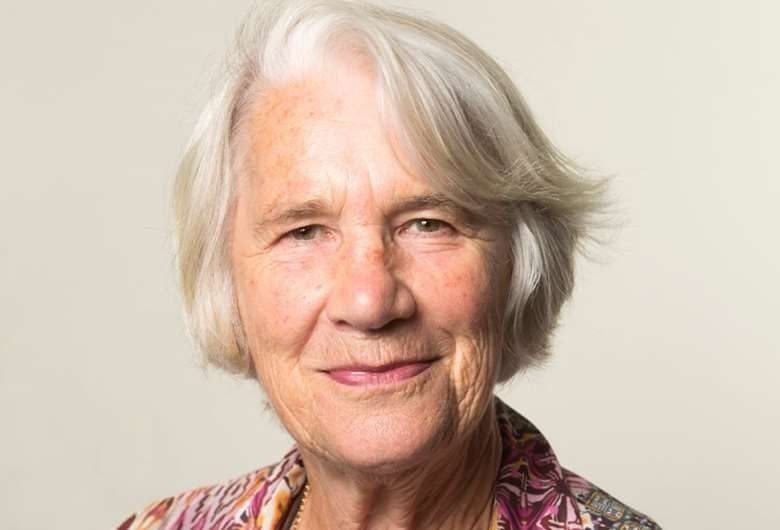What are our policymakers interested in?
As evidenced here, it seems to be still more tallying-up, rather than actual attention to children's broad potential. Dr. Chris Merrick, early years educator, advisor, consultant, and Wendy Scott , ex-headteacher, Surestart national officer give their perspectives following recent UK government announcements on 'children's catch-up.'
The pandemic has created huge turbulence and uncertainty in the world. Whilst responding to the impact that this has had on children, early years settings are being asked to implement a new statutory document from September 2021. At a time like this we should be taking time to make sure our systems and ways of supporting children and their parents are conducive to better lives, rather than defining new curricular goals. Instead the focus seems to be on measuring and intervening – a deficit model, rectifying notional deficiency.
Just how early the government's focus on assessment and testing begins was brought home to me last week.
For the last few months, we have had our grandson and his parents staying with us. During this time he turned two, and his parents were sent questionnaires to fill in for his two-year-old's assessment. There were two questionnaires, one for 24 months, the other for 27 months. A quick look through seemed to us to indicate he was doing fine for his age, but there needed to be answers to the 31 questions for 24months and 41 questions for 27 months, so we found ourselves in conversation with him counting the length of his sentences so that we could record examples, asking him to jump and watching closely to see whether he moved forward three inches when he performed etc etc. It was a real-life example of what assessments based on observation against pre-determined criteria can do:decontextualising learning - we were testing our two-year-old!
In the new Early Years Foundation Stage and the supporting material that has sprung up around it, there is a move away from tick lists towards 'professional knowledge of children'; however, this professional knowledge is still rooted in a developmental paradigm and is based on a 'clear understanding of children's developmental trajectories.' It is not universallyconsidered 'clear' at all; the concept and details are highly contestable in their truthfulness and usefulness to supporting children's learning. Nevertheless, policy seems wedded to the concept of measuring children against age-related criteria and expectations. For instance, the new Development Matters (2020) divides what children should be learning into three stages and suggests 'checkpoints' which 'can help you to notice whether a child is in danger of falling behind.' Information about milestones rooted in a 'progression curriculum' built around curricular goals is readily available, whilst the new Birth to Five Matters document resolutely retains the ages and stages model of the original document – albeit now tracked against six levels.
Measuring children has become an obsession and to make matters worse, in the pandemic, discussions of 'lost learning' abound. We are bombarded by the need for 'catch-up' interventions such as the Nuffield Early Language Intervention programme (NELI) supported by government funding. Indications are that this adds three months to the language performance of children taking part in the interventions. Introduced in Reception in 2020 this is being offered for roll-out nursery during 2021 to address the deficits identified in children who have missed out on provision during the pandemic. Whilst the benefits may be tangible, is it what children need at this time?An article by Georgina Trevor and Amanda Ince in the Spring 2021 Early Education Journal highlights some of the issues: 'in order to navigate the coronavirus pandemic, and its effect on young children, the desire to revert to measurable outcomes to fill so-called gaps in children's knowledge must be avoided.' They argue that, especially in the current context, it is essential that children have access to a 'creative curriculum with freedom and support to play without limitations of an imposed curriculum.' They refer to Carlina Rinaldi's view of education as a constant relational reciprocity between those who educate and those who are educated (Rinaldi, 2006) and I am reminded of a comment made by Carlina at a conference, in which she told us to trust the children.
We need now to step back, trust the children and see their competencies and capabilities, give them time, and work with them and their families to find their way through current pressures. The last thing children need is for educational centres to revert to intensive intervention and measurement, pandemic or no pandemic!
References
Trevor, G.and Ince, A., Early Education Journal, Spring 2021, "The need for a transformative and contextual early years curriculum"
DfE, (2020) Development Matters
Birth to Five Matters (2021)
Carla Rinaldi (2006) In Dialogue with Reggio Emilia, Routledge
The resignation last week of Sir Kevan Collins from his role as Education Recovery Commissioner in the light of the inadequate level of additional funding for schools and early years settings offered by the Treasury reminds me of the statement made by Anne Longfield, when she retired as Children's Commissioner earlier this year. She expressed her frustration that this government is just not interested in the kind of joined-up thinking that is so desperately needed: "during the past ten years, governments have focussed on school improvement targets without noticing that the outcomes for children attending these schools are, overall, getting worse. The Treasury … uses siloed thinking to count the costs and the benefits, which I believe consistently discriminates against children and families. What all this shows is an institutional bias against children."
Ministers talk glibly about levelling up, but do not understand the vital necessity of support for families, and the investment in children's welfare and wellbeing as well as their schooling, that will result in long term savings in grief and frustration in addition to money. It will be a tragedy if the opportunity is missed for a radical re-think on meaningful levelling up, and a commitment to improve the life chances of all children.
 For Anne Longford this implies "a year of opportunity … enabling every child, from whatever background, not just to learn in the classroom, but also to develop their own interests at weekends and in the holidays. Finding joy in finding out, with confidence and resilience by forging their own paths. [We need to become] passionate about making sure that we don't define children by what's happened during this year: we define ourselves by what we offer to children. [We need] a "Covid covenant" from us to our children that takes children out of boxes marked 'problem' and to consider the opportunities they each have."
For Anne Longford this implies "a year of opportunity … enabling every child, from whatever background, not just to learn in the classroom, but also to develop their own interests at weekends and in the holidays. Finding joy in finding out, with confidence and resilience by forging their own paths. [We need to become] passionate about making sure that we don't define children by what's happened during this year: we define ourselves by what we offer to children. [We need] a "Covid covenant" from us to our children that takes children out of boxes marked 'problem' and to consider the opportunities they each have."
We define ourselves by what we offer to children. Words to act on.
Anne Longfield, in her parting statement as Children's Commissioner, says that the Prime Minister and officials should be taking the lead. Sadly the evidence continues to be that they cannot and willnot. Educators, parents, and all advocates for children's rights, wellbeing and potential, however can - despite Westminster discouragements. And there are politicians who also care more, and want to help create a different and open-minded environment for children's learning.
In preparing for our summer 2021 discussion series for educators and parents 'Learning to Live Well Together' I am hugely encouraged by statements from educator panel participants such as "Our school motto is 'Explore Dream Discover', and 'in our centres we have bolted the doors against conveyor-belt learning.'
We need to boldly go where Westminster declines to tread.




